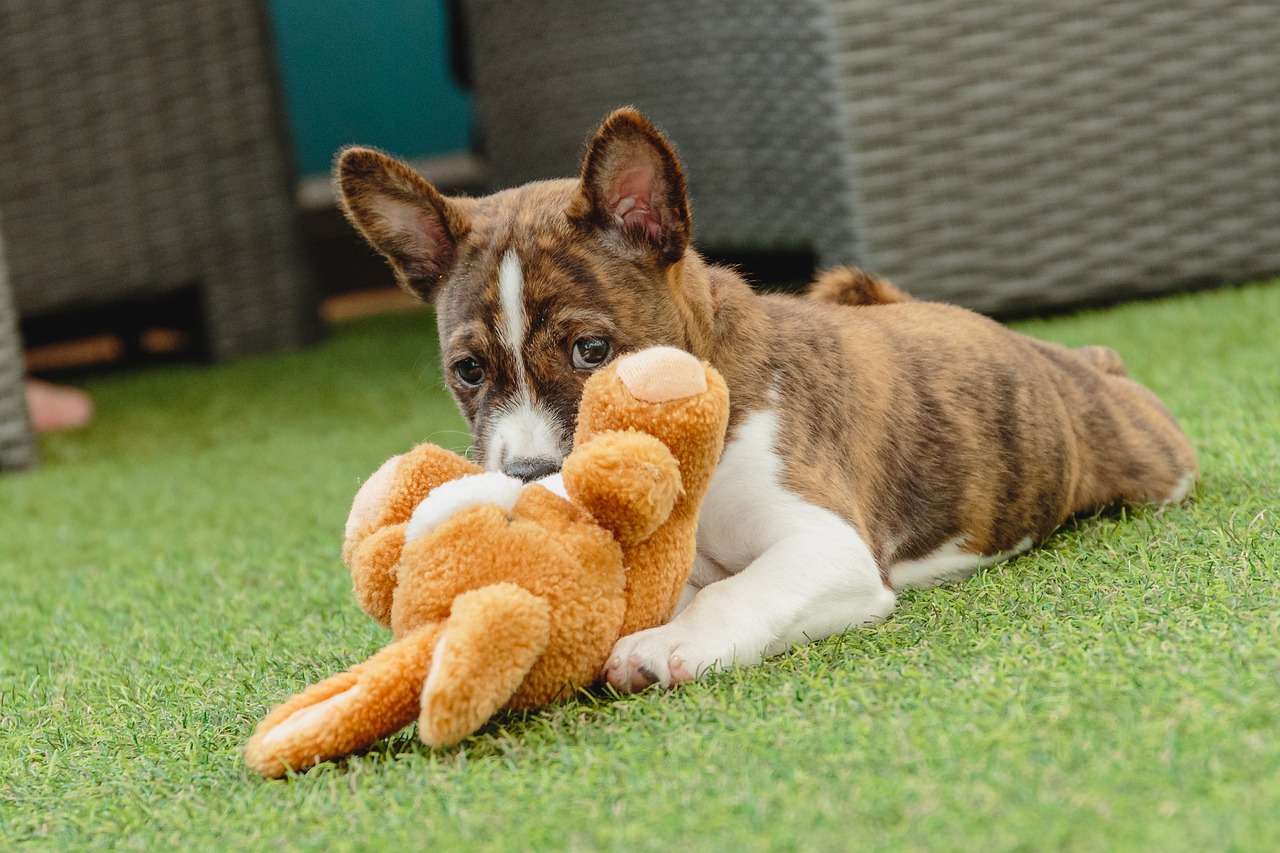Early Play in Puppies & Safe Toys to Offer

from the
Croney
Research
Group
Puppies explore their environments as soon as their senses develop and they can move around. When puppies enter their third and fourth weeks of life, they begin playing with objects. They will start nosing and mouthing toys, if offered. Early play is usually solitary. From five to seven weeks of age, puppies engage in more social object play – where multiple puppies play with the same toy.
Note: there may be some breed differences in when early object and social play begin.
Offer younger puppies (3 – 6 weeks of age) objects to explore in their whelping/nursery area. Appropriate toys include:
-
- pop up play tunnels
- stuffed animals (including with heartbeat sounds)
- cardboard boxes
- paper towel tubes
- tennis balls

Rotate toys for puppies so they stay interesting!

Many breeders and foster caretakers build or buy puppy play gyms. These are structures made of PVC tubing and safe hanging objects. You can hang tennis balls, whiffle balls, frisbees, plastic cups, Tupperware, and other objects from the structure. Plastic chains made for human infants are a safer option for hanging toys. Play gyms give puppies multi-modal stimulation by engaging sight, sound, and touch.
 When puppies are 6 or 7 weeks of age introduce more complex toys like food puzzles, chew toys (e.g., Nylabones), squeaker toys, and Kongs.
When puppies are 6 or 7 weeks of age introduce more complex toys like food puzzles, chew toys (e.g., Nylabones), squeaker toys, and Kongs.
All toys should be big and durable enough they can’t be swallowed.
Chew toys should be made of hard rubber or nylon.
Important tips for puppy safety
-
- Puppies should enjoy toys and not be afraid of them
- Avoid rope, strings, or small toys that puppies could swallow
- Make sure puppies can’t get tangled in any parts of the play gym
- Avoid rawhide
- Check all toys regularly to make sure they are intact
- Make sure puppies aren’t swallowing pieces of toys or their stuffing
- Sanitize or discard objects between litters
- The size of the toy should be appropriate for the size/age of the puppy
- Supervise puppies with toys at first to make sure an object is safe
- Watch older puppies during social play to make sure things stay friendly!
Topic(s): Bare Bones Basics, Behavior, Breeder Resource, Enrichment, Stress & Improved Welfare, Puppy Development